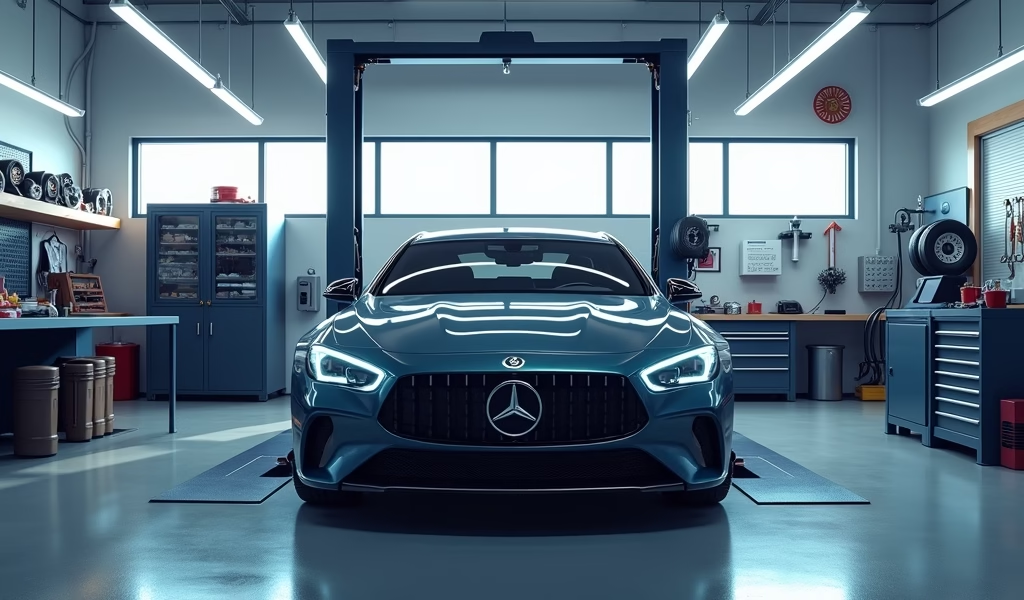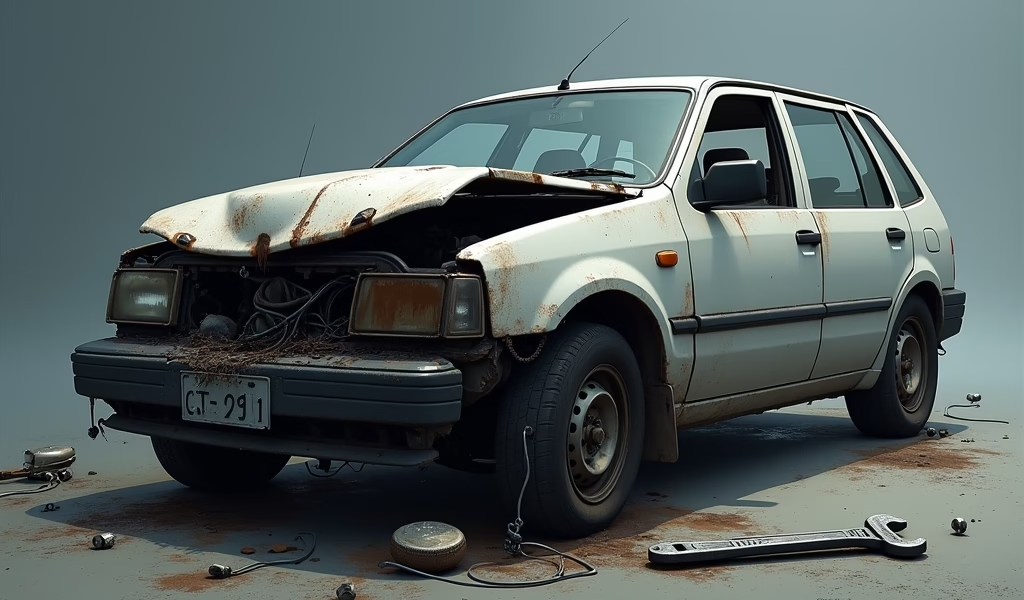Overview
This article explores the crucial connection between vehicle maintenance and legal protection in car accident cases, explaining how regular tune-ups not only prevent accidents but also strengthen legal positions through documentation. It offers practical advice on finding qualified car accident attorneys while emphasizing that maintaining service records serves as valuable evidence that can significantly impact liability determinations and legal outcomes.
Table of Contents
- Understanding Car Accidents: When Legal Help Meets Mechanical Know-How
- Why Regular Tune-Ups Could Prevent Car Accidents
- Finding Top Rated Car Accident Lawyers: A Mechanic’s Perspective
- How Proper Vehicle Maintenance Can Strengthen Your Legal Case
- Warning Signs Your Car Needs Attention Before It Becomes a Legal Issue
- The Legal-Mechanical Connection: Documentation That Matters
- The Cost of Prevention vs. Legal Remediation
- Conclusion: Safeguarding Your Journey
- Frequently Asked Questions
Understanding Car Accidents: When Legal Help Meets Mechanical Know-How
Accidents strike like lightning – sudden, devastating, and often leaving chaos in their wake. When metal meets metal on the highway, lives change in an instant. As a mechanic who’s witnessed the aftermath of countless collisions, I can tell you that finding top rated car accident lawyers becomes as crucial as understanding what went wrong mechanically.
But here’s what most people miss: prevention and preparation walk hand in hand. Your vehicle whispers warnings long before it screams for help on the roadside.
The legal system surrounding car accidents resembles a complex engine – intricate parts working together, each critical to the whole operation. One missing component, like proper maintenance records, can cause the entire case to sputter and stall.
Have you ever considered how your maintenance habits might affect your legal standing after a collision? Many haven’t, yet this connection proves vital.
When the dust settles after an accident, two professionals often enter your life: a mechanic to assess the damage and a lawyer to protect your interests. Both examine evidence, look for causes, and help rebuild what’s broken – just in different realms.
Why Regular Tune-Ups Could Prevent Car Accidents
Your car speaks a language of small sounds, slight vibrations, and subtle changes. Regular tune-ups are like translator sessions, decoding these messages before they escalate into roadside emergencies.
Think of tune-ups as preventive medicine for your vehicle – addressing minor issues before they metastasize into major failures. A simple spark plug replacement could be the difference between a smooth commute and a fiery collision on the interstate.
The statistics tell a sobering story. According to the National Highway Traffic Safety Administration, vehicle maintenance neglect contributes to approximately 2% of crashes. That’s thousands of preventable accidents annually.
What makes regular maintenance so powerful? Consider these critical components checked during proper tune-ups:
- Brake systems – The difference between stopping in time or not
- Tire condition – Your only contact points with the road
- Steering components – Controlling your vehicle’s direction
- Light functionality – Being seen and seeing others
- Fluid levels – The lifeblood of your vehicle’s systems
Each of these systems, when properly maintained, forms a shield against potential accidents. When they fail, they become evidence in your legal case.
As clear as day, proper maintenance creates a paper trail that can prove you took reasonable care of your vehicle. This documentation can be worth its weight in gold if you ever need to work with motor vehicle accident lawyers after a collision.

Finding Top Rated Car Accident Lawyers: A Mechanic’s Perspective
Finding legal representation after a crash feels like searching for a specialty tool – you need the right one for the specific job. Not all lawyers understand the mechanical aspects that might have contributed to an accident.
The best car accident attorneys, like master mechanics, have specialized knowledge. They understand how brake failure translates to liability, how timing belt maintenance records support your case, and how to decode the story told by skid marks and impact patterns.
When searching for top rated car accident lawyers, look for those who speak both languages – legal terminology and mechanical understanding. The most effective attorneys collaborate with accident reconstruction specialists and automotive experts.
What separates ordinary lawyers from exceptional advocates? Like the difference between a parts-swapper and a true diagnostician, it comes down to their approach:
- They investigate thoroughly, not just accepting the police report at face value
- They understand vehicle dynamics and how mechanical failures affect collision outcomes
- They recognize when maintenance records strengthen your position
- They can translate technical jargon into terms judges and juries understand
- They work with qualified experts who can testify about vehicle conditions
The attorney-client relationship should feel like the trust between a car owner and their long-time mechanic – built on clear communication, expertise, and a genuine desire to help.
Don’t settle for just any legal representation. Find someone who understands that behind every collision is a complex story of mechanical interactions, human decisions, and sometimes, maintenance oversights.
How Proper Vehicle Maintenance Can Strengthen Your Legal Case
Your maintenance records serve as character witnesses for your vehicle. They testify to your diligence and responsibility long before you ever enter a courtroom.
Imagine this scenario: Two similar accidents occur, but one driver has meticulous maintenance records showing regular tune-ups, while the other has nothing. Like night and day, their legal outcomes often differ dramatically.
When liability becomes murky after an accident, proving you maintained your vehicle properly can tilt the scales of justice in your favor. It establishes you as a responsible vehicle owner who took reasonable precautions.
How do maintenance records strengthen your case? They create a narrative that car crash attorneys can leverage:
- Demonstrating you exercised due diligence in vehicle safety
- Establishing that mechanical failure wasn’t due to your negligence
- Creating a timeline of vehicle condition before the incident
- Showing compliance with manufacturer recommendations
- Providing expert testimony opportunities from your regular mechanic
The absence of maintenance records, however, leaves a void that opposing counsel can fill with speculation about neglect. Like driving without headlights at night, it puts you at a significant disadvantage.
Remember: courts appreciate documentation. In the battle between “he said, she said,” the party with supporting records often prevails. Keep your service receipts filed away like precious insurance policies – because that’s exactly what they become after an accident.
Warning Signs Your Car Needs Attention Before It Becomes a Legal Issue
Vehicles rarely fail without warning. Like a patient developing symptoms before a health crisis, your car gives signals before catastrophic failure. Learning to recognize these warnings could save you from both mechanical disaster and legal entanglements.
The brakes that squeal today might fail completely tomorrow – at the worst possible moment. That strange engine noise isn’t just annoying; it’s your vehicle’s desperate plea for attention before components fail catastrophically on the highway.
Pay attention to these warning signs that scream “Get a tune-up now!”:
- Unusual noises – Grinding, squealing, or knocking sounds
- Warning lights – Your dashboard isn’t decorative; it’s diagnostic
- Handling changes – Pulling to one side, loose steering, or vibrations
- Performance issues – Hesitation, stalling, or power loss
- Fluid leaks – The colorful puddles beneath your car tell important stories
Each ignored warning represents not just a mechanical risk but a potential legal liability. When that steering linkage you’ve been meaning to check finally fails and causes an accident, the question becomes not just “What happened?” but “Why didn’t you address this known issue?”
Don’t wait for small problems to become major disasters. The cost of regular maintenance pales in comparison to the combined expenses of vehicle repairs, medical bills, and legal fees after an accident.

The Legal-Mechanical Connection: Documentation That Matters
In the garage and the courtroom alike, documentation reigns supreme. Every oil change receipt, inspection report, and work order tells a story about your vehicle’s history and your commitment to safety.
Like a careful medical history helps doctors make accurate diagnoses, your vehicle’s maintenance history helps lawyers in car accident cases construct accurate timelines and establish critical facts.
What documentation should you religiously maintain? These records form the backbone of both proper vehicle care and potential legal defense:
- Regular service receipts with detailed work performed
- Repair orders showing addressing of safety concerns
- Inspection certificates demonstrating compliance
- Parts warranties and replacement records
- Diagnostic reports showing vehicle condition
Store these documents as carefully as your insurance policy. In fact, consider them part of your overall protection strategy. Digital copies provide backup in case originals are lost in an accident.
The most compelling legal cases combine solid documentation with expert testimony. Your regular mechanic, who has documented your maintenance history, can become a powerful witness regarding your vehicle’s condition before an accident.
Remember: in legal proceedings, what can be proven often matters more than what actually happened. Documentation transforms your claims from mere assertions into established facts.
The Cost of Prevention vs. Legal Remediation
Let’s talk dollars and sense. Regular tune-ups might feel like an expense, but compared to the financial tsunami of accident litigation, they’re mere drops in the bucket.
Consider this stark contrast: A comprehensive vehicle tune-up might cost $150-$400 depending on your vehicle. The average car accident lawsuit? It can easily run into tens of thousands of dollars – and that’s before counting vehicle replacement, medical bills, lost wages, and the incalculable cost of pain and suffering.
The math isn’t complicated. Preventive maintenance is like buying insurance – except it actually reduces the likelihood of needing to file a claim in the first place.
According to the Insurance Information Institute, the average auto liability claim for property damage was about $4,711, while the average claim for bodily injury was about $20,235. Now compare that to the cost of regular maintenance.
What’s more, even if an accident occurs despite your best preventive efforts, having documentation of proper maintenance can reduce your liability. This might mean lower settlements and reduced insurance impacts.
Think of tune-ups as investments in your future – financially, legally, and safety-wise. They pay dividends in reduced repair costs, extended vehicle life, and significantly decreased legal exposure.
When you weigh the modest cost of prevention against the staggering expense of accident litigation, the wise choice becomes crystal clear. An ounce of prevention truly is worth a pound of cure – or in this case, perhaps hundreds of pounds of legal briefs.
Conclusion: Safeguarding Your Journey
Your vehicle represents freedom, but with that freedom comes responsibility – both mechanical and legal. The connection between regular tune-ups and reduced legal liability isn’t just theory; it’s practical protection on multiple fronts.
The road ahead may hold unexpected challenges, but with proper maintenance and the knowledge of how to find top rated car accident lawyers if needed, you’re equipped for whatever comes your way. Remember that documentation serves as your first line of defense, while quality legal representation becomes your advocate when prevention wasn’t enough.
Don’t wait for disaster to strike before considering these connections. Take action today – schedule that overdue tune-up, organize your maintenance records, and research qualified legal representation before you need it.
The best accidents are the ones that never happen because someone was diligent about maintenance. But should the unexpected occur, the combination of proper vehicle care and expert legal guidance provides the strongest possible position for recovery and justice.
Drive safely, maintain diligently, and rest easier knowing you’ve addressed both the mechanical and legal aspects of responsible vehicle ownership.
Frequently Asked Questions
How do I find the best car accident lawyer for my case?
Look for attorneys specializing in auto accidents with proven success records and mechanical knowledge. Focus on those who offer free consultations, understand technical vehicle aspects, and have positive client reviews specific to car accident cases.
Can my vehicle maintenance records really affect my legal case?
Absolutely – they establish you as a responsible vehicle owner and can help prove the accident wasn’t caused by your negligence. Consistent maintenance records often strengthen your position by demonstrating you took reasonable steps to ensure vehicle safety.
What should I do immediately after a car accident to protect my legal rights?
Document everything at the scene including photos, witness information, and police reports. Seek medical attention even for minor injuries, notify your insurance company promptly, and consult with a car accident attorney before providing detailed statements.
How long do I have to hire a lawyer after a car accident?
While statutes of limitation vary by state (typically 1-6 years), it’s best to consult with an attorney as soon as possible. Early legal involvement helps preserve evidence, document injuries properly, and prevent critical mistakes in early insurance communications.
How do contingency fees work with car accident lawyers?
Most top rated car accident lawyers work on contingency, meaning they only get paid if you win your case. The standard fee ranges from 25-40% of your settlement, but this arrangement allows access to quality legal representation without upfront costs.


Pingback: Best Car Wreck Lawyer: 5 Car Care Fixes - knowsyourcar.com